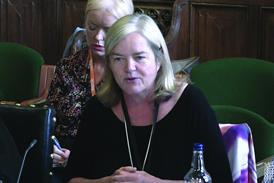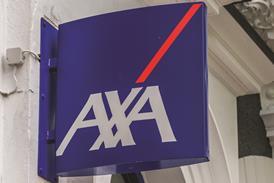The government’s immigration reforms envisage doubling the qualifying period for settlement in the UK, thereby throwing the future of thousands of registered foreign lawyers into disarray
When Keir Starmer outlined the government’s immigration proposals in a white paper last month, much of the focus was on the potential impact on the health and social care sectors. But the uncertainty created has filtered down to all professions – not least legal, where the numbers of foreign lawyers have increased significantly in the past decade.
Now this community is increasingly concerned that goalposts are being moved.
The key reforms causing unease are for the standard qualifying period for settlement in the UK to double to 10 years. This does not just postpone settled status but potentially puts it at risk if employers who have absorbed the cost of sponsoring a foreign lawyer are asked to stump up for another five years.
Emma Barrett-Ryan, a trainee solicitor from Canada now based in Manchester, is part of an informal support network for those in settlement limbo and says immigrant lawyers have multiple worries.
‘The doubling of qualifying years from five to 10 years was demoralising,’ she said. ‘If it makes it easier for others in the legal field to imagine – if you were approaching the end of your LPC and suddenly you had to repeat it, inclusive of the massive costs, and your training contract and qualification was kicked further down the road. The instability of not knowing when you will be secure is acutely stressful.’
Costs for each year on a sponsored visa – for example, the £1,035 a year immigration NHS surcharge – are not necessarily covered by all sponsors. Barrett-Ryan added: ‘If firms do not opt to pay this, immigrant lawyers must foot several thousand pounds upfront when applying for or renewing their visa. Again on trainee salaries, this is tough.’
The Gazette has heard from one trainee whose firm’s response internally to their immigrant juniors’ concerns was ‘get a credit card’.
'The white paper has created a degree of ambiguity and uncertainty. As lawyers, it has created challenges in being able to advise clients as to the best course of action'
Zeena Luchowa, Laura Devine Immigration
The government may also increase the minimum salary threshold for a skilled worker visa from the current £38,700 a year. While corporate lawyers based in London would comfortably exceed this, there are concerns about lawyers working in lower-paid areas elsewhere. The white paper has no proposals for adjusted salary thresholds to take account of regional variations.
Immigration specialists stress that nothing is decided and that most of the government measures are subject to public consultation and recommendations from the Migration Advisory Committee. The biggest unresolved issue at present is whether the qualifying period will be extended only for new applicants.
Zeena Luchowa, a partner with London firm Laura Devine Immigration, said: ‘Unfortunately it is not clear whether this extension will apply retrospectively. This creates uncertainty for individuals and also for sponsors, as well as potential unfairness, for example, for those very close to reaching the five-year qualifying period when the new measures take effect.
‘The white paper has created a degree of ambiguity and uncertainty. As lawyers, it has created challenges in being able to advise clients as to the best course of action while being cautious not to pre-empt a particular position.’
Joanna Hunt, head of immigration at DAC Beachcroft, said the big difference in this reform programme is the wide-ranging potential impact on anyone who has come to the UK to work.
‘The measures have caused a great deal of upset and concern, particularly the 10-year proposal,’ Hunt said. ‘The best advice for now is to stay up to date on developments and speak to your employer if you believe that you are eligible to apply for a visa, but that this may change in the future.’
Solicitors Regulation Authority figures show that 7,145 registered foreign lawyers are working in England and Wales. That figure has more than trebled in the past 10 years.
Barrett-Ryan said the network of immigrant lawyers has a strong sense of community and mutual aid, and this will continue. ‘I’ve spent most of my adult life living in the UK since the end of 2018 and to have the can kicked down the road has been very distressing. I’m sick of feeling so much insecurity,’ she added.
‘Overall, the sense in our community is that of a shared urgency and taking solace with each other – it has already been a long road to get where we are and sadly it will get longer. As is often a trait of lawyers, we are planners. The white paper has thrown yet another complicated spanner in the works and it is frustrating to know that our efforts must continue with increasing costs.’




































No comments yet